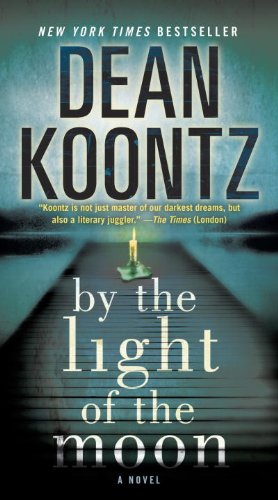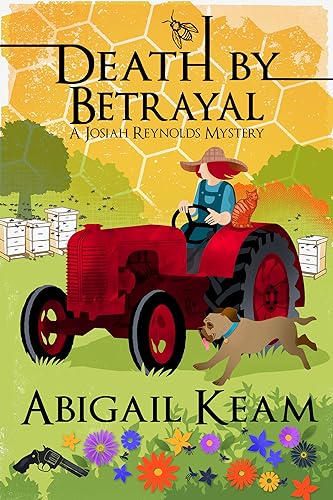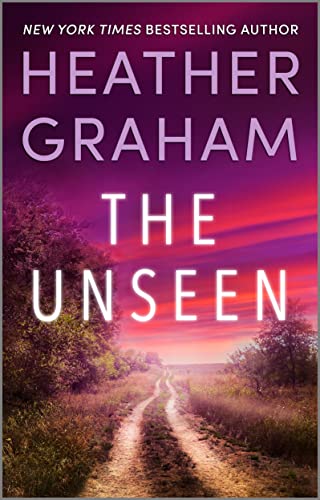It’s April 2033. Drought and water wars ravage Africa, and heat-waves kill tens of thousands in Europe. Famine sweeps across Asia after the monsoon fails, and the United States struggles with massive social upheaval following decades of economic malaise.
Ayden Walker is a young field researcher. It’s his job to limit the damage to the environment from climate change, greed or plain incompetence. He’s also part of the virtual BioWatch community where he works to hold those responsible to account. As such, he has little patience for people who rush to commercialise genetically modified organisms before the risks are properly understood.
So he is appalled when he meets William Hanford and learns that, decades ago, their parents were involved in illegal genetic experimentation.
But what he learns next shakes the very foundations of his existence.
He isn’t given time to deal with it though. Ayden stumbles across something that could change the course of humanity if he doesn’t stop it… but he’s not so sure he should. People are consuming without thought, placing unbearable loads on the planet’s resources and playing havoc with the world’s climate. Perhaps truly radical action could be justified.
“Let’s say I’ve got a vial of this perfect stuff in my pocket. Do we campaign for a worldwide vote we know will never happen—or do I just open it?”
But he isn’t the only one contemplating the question. Someone has him under surveillance and it becomes clear they have no intention of allowing him to interfere. Ayden is forced to seek an uneasy alliance with US military intelligence as he hunts for the truth.
Then Ayden discovers that his adversary will kill to keep his secrets.
Visit http://interventionbymunro.com/ for more information on Intervention.
And here, for your reading pleasure, is our free excerpt:
an excerpt from
INTERVENTION
By W.R.R. Munro
Copyright 2012 by WRR Munro and published here with his permission
1
June 2011
The truth is this: What we are doing is functionally insane. If we do not change this pattern, we will condemn our children and all future generations to struggle with ecological curses for several millennia to come.
… Continuing on our current course would be suicidal for global civilization.
Al Gore, “Climate of Denial,” rollingstone.com
Wednesday, June 22nd
He’d nailed it. Had to be right. Maybe he was outgunned, but he had a few tricks up his sleeve.
Cate was on the porch, stretched out on the daybed with her wireless tablet. Marc paused in the doorway, his pulse quickening as he admired her slender, almost feline form. Even after four happy, busy years together he couldn’t quite believe his luck.
“Sorry Cate, I think I’ve beaten you to it this time,” he said.
She looked up at him and smiled a challenge. “Have you now, my darling?”
“Took a punt on the great apes. Ran my new algorithm against GenBank. Got a 90 percent chance of it being chimp.”
A slight frown creased her forehead. “Did you look at the discrepancies? The actual DNA sequences?”
“Hey, I just crunch numbers, remember?”
“Because I initially thought chimp, so I had a look at the FOXP2 transcription factor. I don’t think it’s chimp,” she said.
“The what factor? No … don’t tell me. Take a look for yourself. It’s on-screen now. The desktop.” Marc gestured vaguely toward the little study inside. “Nothing else comes close. Coffee?”
“Please.”
He busied himself in the kitchen, grinding beans and heating cups, smiling to himself as he created little masterpieces of dense golden crema and rich aroma. Eventually he wandered into the study.
“Shit,” she said quietly.
Marc froze. Cate never swore.
She sat bolt upright, staring at the screen, her hands held away from the keyboard as if it threatened to burn her. “Shit, shit, shit.”
She must have heard him, smelled the coffee perhaps. She turned around.
“Marc, we’re in really big trouble,” she said.
“Hey, it can’t be that bad. What’s going on?”
“It is that bad. It’s worse. It’s not chimp, Marc. I can tell you exactly what species we have been experimenting with, and believe me, we’re in the deepest shit imaginable.”
2
April 2033
The wind picked up and the dunes sang. The knife-edge ridge curving along the top of the crescent dune blurred and sand blew into the retreating edge of the rainforest. Small children with dark skin and wide eyes hid amongst the trees and listened to the deep rumbling song that heralded the slow but implacable destruction of everything they knew.
Scientist TV, “Amazon Desertification Accelerates,” worldscientist.sci
Tuesday, April 5th
Ayden Walker blinked sweat from his eyes. It was a relief to be working in the relatively dense scrubby foliage by the riverbed. The cherry trees were pruned hard to reduce irrigation costs through the drought so the orchard had offered scant protection from the harsh glare of the sun. Even here though, the air was hot and smelled mainly of dust.
He pushed a thin branch aside and peered through the gloom, just making out the small forms of several bees hovering over wildflowers. He smiled and reached into his pocket for the spray.
[Mark location, image capture,] he commanded silently. As usual, the bees appeared completely normal. There was nothing to indicate that they were failing to pollinate the flowers they visited. Ayden sprayed a fine mist of passive micro-sensors at the bees and slowly worked his sweep net past the branch.
[Marked. Sample 8-323. Still image captured,] his earpiece confirmed.
He swung the net. As its magnetic rim swept past a bee, it momentarily charged the sensors that had come to rest on the insect’s surface. Ayden’s earpiece chirped, confirming receipt of temperature and humidity data. As delicately as possible, he emptied the net’s angry, buzzing contents into a sample jar then crouched and clipped one of the flowers into a sample bag. He rose, moved twenty paces upstream, and was still.
Ayden’s earpiece chimed softly.
[Video call from Linsey Carr,] it said and a small window appeared in his specs, top right where it wouldn’t block his view. Linsey was sipping from a steaming mug.
[Accept,] he subvocalized, then spoke aloud, “Hey Lin. How’s sunny Seattle?”
His audible voice boomed in his ears and shattered the quiet around him. Circumstances permitting, he preferred to speak audibly on person-to-person calls. His phone was quite capable of synthesizing his voice for the listener, and his neckband rarely misinterpreted the minute electrical signals within his larynx when he subvocalized, but somehow the result was thin, lacking timbre. Made him sound like an artificial.
“Oh, the comedian are you? I’ll be getting sick of this rain, I’ll tell ye that for naught. No video Ayden. Caught you at an inconvenient time, have I?” She peered directly into her cam with a warm smile. Her broad Scottish accent made her gorgeous West Indian looks all the more surprising, exotic. Married.
He touched thumb and third finger together, reactivating his gesture cuffs, which combined wrist nerve and inertial data to calculate exactly what each finger was doing and integrated seamlessly with the display his specs superimposed over his view. He smiled and flicked Linsey’s window larger.
“Nothing so interesting. Just not too many cams around here.” He gestured, giving her access to the view from his specs, the line of scraggly trees and bushes, the trickle of water meandering along one edge of the mostly dry riverbed. “Problem?”
“Aye, Ayden, I’m sorry. The replacement RFID sensor spray you’re needing urgently in Montana? It’ll be another three, maybe four days.”
“Ahh, okay,” Ayden said. He couldn’t see any bees in his immediate vicinity. [Mark location, none visible,] he subvocalized.
“George says if you spent more time in the office organizing stuff we wouldn’t have these problems, says you’re not working solo anymore, that you’re supposed to be managing forty-six field researchers across three states.” She rolled her eyes. “He ranted at me for about five minutes—I think you owe me chocolate.”
Ayden grinned. As he’d tried to explain to George Reyes more than once, he could access the Bee Anomaly project’s virtuality, “BEAN,” from anywhere. His boss struggled to grasp that where you were just wasn’t important anymore.
“One extra creamy with almonds next time I’m in Seattle, it’s a promise,” he said.
“He says we canna wait, says I should be finding another supplier, but it takes admin a week to approve suppliers in any event,” she said.
Ayden’s hands danced in the air. Translucent icons floated around him. He shuffled scheduling items. “Don’t worry about the spray, Lin,” he said. “I can move things around a bit so we don’t lose too much time. Just let them know they’re pushing it, will you?”
“Okay, but there’s one more thing.” She hesitated. “George says he thinks MataPharms is already nosing around the EPA.”
Ayden’s smile vanished. “What are those cowboys up to now? No, let me guess.” His voice took on a sardonic edge. “They’ve engineered a super-bee, resistant to all pathogens of course … and the honey cures bowel cancer, arthritis, and bad breath, right? And all they want to do is loose their little experiment on the world without all that tedious testing.”
She offered him a wry smile. “Something like that, I’m sure.”
As she signed off, Ayden shook his head. Then he cleared his specs and filled his lungs, tasting the complexity of smells in the living air. He stood still, allowing the soft sounds of small creatures moving around in the undergrowth to reassert themselves. His smile returned.
• • •
Greg Fanshaw sat down heavily at the big wooden table that dominated the farmhouse kitchen, holding a couple of fingers to his earpiece as if he could project a tender touch across the airwaves. “Where are you now, hon?”
Her sobbing paused. “I’m in the car. Still in the car park. Oh Greg, it was just awful. That Jane Hawkins was right behind me. Didn’t say a word but she was watching everything.”
“Just come home, hon. Are ya okay to drive?”
“She’ll be online right now, I just know it … telling everyone how I couldn’t even pay for the groceries.”
“So … what did you do?”
“What could I do? I started taking things out ‘til I could cover the bill, that’s what I did, Greg, so it’s no steak and no beer. We’re eating spaghetti and drinking tea tonight.”
“It’s okay, hon. Just come home now. We’ll sort it out.”
“It’s most definitely not okay, Greg. I’ve never been so humiliated in my life.”
Greg listened to his wife sob.
“Sorry,” she said. “Sorry … I’ll be home shortly. Just need to calm down a bit so as I don’t have an accident.”
Greg sat in the kitchen, unable to summon the energy to move. The local hives all had the same problem, and the interstate beekeepers were keeping well away from Oregon. The trees would only be in flower for another week. After that, without pollination, his cherry yields would be too low to cover even the harvesting costs. The bank had already refused to increase their overdraft. He’d stretched it to the limit buying the additional water rights he needed to keep the trees alive through the drought. They’d already sold off Raycliff, nearly a third of the property his father had spent a lifetime building up.
Greg sighed then abruptly scrubbed at his scalp through his grey, close-cut hair. He reached for the screen sitting on the table in front of him and transferred another thousand dollars from Greg Junior’s college fund into the household account. Helen must never find out.
He glanced up at the old side-by-side shotgun hanging on its rack. He had lots of life insurance. It’d only take a careless cleaning accident. “Don’t tempt me, old girl. Don’t tempt me.”
Through sheer, stubborn force of will, he pushed himself to his feet, jammed on his hat and headed out the kitchen door. Where were those useless, damned scientists anyway? He searched through the heat and dust.
Finally, he spotted a lone figure in the shade by the river, standing totally still like one of those street artists. He wore some sort of utility vest draped with little bags and bottles and an insect net, over a crumpled white shirt, sleeves rolled to his elbows. About average height and slim with longish sandy-colored hair, there was something graceful about him that made Greg feel lumpy. He looked like a long distance runner, a dancer perhaps.
Doing nothing. Greg clenched his teeth as he headed over.
“Mind if I ask what the heck you’re doing?”
The kid turned, making a tiny gesture with his right hand. He had all the latest graphene phone gear which, Greg couldn’t help thinking, looked like girl’s jewelry. It also looked expensive. No doubt Greg Junior would be wanting the same junk in a few years’ time, not that they’d be able to afford it. Greg could vaguely see shapes frozen onto the surfaces of the kid’s specs. He was probably submerged in 3D porn while he was supposed to be working.
“You must be Greg Fanshaw. G’day, it’s nice to—”
“Do ya realize my family’s livelihood’s at stake here?”
“Mr. Fanshaw, I—”
“The university said they’d send scientists down here to work out what was wrong with the bees. Instead they send a bunch of kids … and as far as I see you’re doing nothing.”
“We’re doing everything we can, Mr. Fanshaw. We’re done collecting specimens in your fields. I’m just finishing up along the river. If you’d like I can send you our data.”
“You’re Walker, aren’t you?” Greg didn’t wait for confirmation. “Well, Ayden, I don’t want to know about specimens and such. I want to know when you folks are going to work out what the heck’s going on around here.”
“Look, I’m sorry, but science doesn’t work that way. First we collect the evidence, then we—”
“Don’t patronize me, boy, I went to school. Your scientific method’s all very well, but my family is sinking without a trace and I need to know what to do about it.”
Greg caught the tiny hand gesture, could vaguely see shapes shifting across the kid’s lenses. The kid didn’t give a damn. He felt himself lean forward, felt his fists bunch.
“I’m sorry but we really are going as fast as we—”
But Greg was already walking away. Had to. To stop himself from hitting the kid.
• • •
Ayden watched the man’s rigid, retreating back.
[Found. Proposed emergency financial assistance for primary producers affected by the developing bee crisis,] his earpiece said.
[Memo to project admin. If the financial assistance package gets approved I suggest we offer it to the Fanshaws. In the meantime, can we look into local community groups? Mr. Fanshaw is showing signs of severe stress.]
Ayden moved another twenty paces along the riverbank.
[Memorandum confirmed.]
He scanned the area for bees. He couldn’t think of any more he could do for the man.
[Mark location, none visible.]
• • •
Back at his campsite, Ayden stacked the last of the day’s sample bags in the field fridge, glancing at the data it had windowed to his specs. The day’s strong sun—and his careful alignment of the plastic photovoltaic cells printed onto its lid—had recharged the batteries to 41 percent of capacity, plenty to last overnight and for the trip into town tomorrow. His tent, just big enough to hold his unrolled sleeping bag, was pitched in a small grassy clearing a few paces from the river bank. He sat next to it facing the little cams built into the frame of the backpack that held most of his field equipment.
Real video was much better than avatars or just voice when you were trying to be persuasive.
[Video call, Professor Sherman.]
[Confirmed. Awaiting response. Accepted.]
The office appeared to be empty. Much of the flat surface of the professor’s desk was occupied by a touch-pad displaying icons and links, and even a virtual keyboard. Professor Hamish Sherman was the head of the Entomology Lab at University of Washington and he was old school, refusing to have anything to do with gesture cuffs, sub-vocalization neckbands, and display specs. He at least had a binocular cam built into his display so Ayden’s specs could display the office in 3D, but he would only see Ayden on a 2D desktop flat-screen.
“Hello Ayden, my lad, just one moment please.” The voice sounded a little distant, then finally the professor walked into view and sat down with a flourish. As usual, his thin, white hair was immaculately combed, his rich blue shirt perfectly pressed. “Good timing. I was about to call you. George tells me some fool has leaked the vector map to the press and they’re all over it. The greenies are having a field day, and California’s almond growers are already up in arms. They’ll be hit by next summer at the latest. If it spreads nationwide, the financial estimates are in excess of thirty billion per annum, and God only knows what it’d do to food prices. No one has tried to work out the long-term biodiversity impact yet.”
“We just can’t let it happen, Professor.”
“Indubitably. Invectives are being liberally applied in all directions, and our esteemed leader is going into damage control mode, but it’s not clear to me how we are going to break the deadlock. I have all but crawled up the backside of every specimen sent to me for analysis, but I can’t find anything stopping those bees from doing their jobs. They appear to be perfectly happy and healthy.”
The professor’s encyclopedic knowledge of all things insect was legendary. If he couldn’t find anything wrong with the bees then the project really was in trouble.
“It must be the bees. Too many different plant species are affected and they’re all producing normal levels of healthy pollen, and when we pollinate manually, we get normal outcomes.”
“You know Ayden, I was delighted when George approached the university to partner his pitch to the EPA for this investigation. It’s good for the department’s budget, and it’s good for the students to be involved in something real, but I have to say I find myself more suited to the pace of theoretical academia. But you didn’t call me so we could share our woes, did you? You want something specific.”
“Yes, Professor, I do. I want you to come out here, look at the whole picture.”
“Ahh, view the whole complex interaction, that kind of thing is it?”
“Yes.”
The professor paused for a few moments. “Well, you know I’m an old-fashioned reductionist myself, but I must admit I can’t think of any other approach to take, and to be frank the idea of putting a little distance between myself and George does seem attractive at the moment. I’m all yours.”
3
June 2011
Today humanity uses the equivalent of 1.5 planets to provide the resources we use and absorb our waste. This means it now takes the Earth one year and six months to regenerate what we use in a year.
Moderate U.N. scenarios suggest that if current population and consumption trends continue, by the 2030s, we will need the equivalent of two Earths to support us.
And of course, we only have one.
Global Footprint Network, footprintnetwork.org
Monday, June 27th
“Marc.”
“Hmmm?”
“What are you doing?”
“Just trying to hide your data. You’ve heard of those algorithms they use to hide data inside photo JPEGs? By encrypting it into subtle color distortions?”
He looked up from the desktop screen. Cate was standing in the study doorway, clutching an open box to the old paint-stained t-shirt she was wearing. She looked at him blankly.
“Anyway, I think I’ve found a way to do the same for digital movie files.”
“Marc! Please don’t bury yourself in some fascinating coding project. We have to get out of here, as far away as we can, as fast as we can, then—”
“Then what? Let him get away with it?”
“No. Maybe. I don’t know, but we have a fourteen-month-old baby. Can we just get him out of here first?”
“C’mon, Cate. We’re not in physical danger. Gardner may be a bit of a megalomaniac but he’s also a scientist. He’s dedicated himself to medical advance, to helping people. He’s not a thug, he’s not going to—”
“You’ve no idea what he will or won’t do, nor do I. We had no idea how far he’d take our work.”
“Look, we’ll get out of here today … this afternoon. I’ll have this thing running in a few minutes, then I’ll help pack. But we need to take the evidence with us. Otherwise he just has to run a shredder and fire up the incinerator for a few hours and it’s our word against his. Okay?”
At first she didn’t respond. Marc was about to turn back to his computer, but Cate’s expression stopped him. She’d never looked at him like that before. He hoped she wouldn’t again.
“What?”
“Evidence, Marc. What would Gardner have to do if he wanted to destroy all the evidence?”
4
April 2033
The overly-handsome young presenter wore a wool suit and scarf but no hat or gloves. Over his shoulder the cloudless sky was an intense purple-blue.
“We’re here,” he said. “I’m standing at the North Pole. The camera pulled back from the reporter, revealing the white painted metal deck of a ship.
“Of course, I’m also floating at the North Pole because for the first time in human history the Pole is ice free. And that’s not all,” he said slipping a little thermometer from his jacket pocket.
“It’s two degrees above freezing! Now, the whole Arctic isn’t ice-free yet. Scientists say that’s still a decade away. In fact tomorrow, we’re hoping to take you to the edge of the ice sheet and we’ll go looking for polar bears! None have been spotted so far this year, but maybe we’ll get lucky!
His face became serious. “We have to wait for the all-clear though. There’s been another methane event, and the levels are still too high for our safety.”
An inset window showed a section of ocean alongside an ice sheet. The ocean was foaming with bubbles.
A Summer to Remember: Episode Three, “Climate change delivers another unwelcome milestone and scientists confirm fears about melting methane clathrates,” asummertoremember.indie.ent
Friday, April 8th
The orderly rows of white cherry blossoms were starkly beautiful against the landscape of bare dirt and browned grasses. They walked along a row of trees, Ayden carrying Professor Sherman’s folding chair. He noted with a smile that the professor wore elastic bands over his shirt sleeves and trousers at wrist and ankle, and that he wore sunblock under a beekeeper’s hat with its built-in veil and was pulling on gloves as they walked across the field. Most of the professor’s career had been spent inside labs and libraries.
For no obvious reason, the professor stopped and reached for his chair.
“Thank you, my boy.” He unfolded the chair and placed it facing a row of trees.
There was a lot of bee activity at that spot, but Ayden couldn’t see how it was different from any other in the field. The professor simply sat and watched, his head no more than a few feet from the activity.
Ayden made himself comfortable under a tree at the edge of the field and slipped into BEAN, setting his specs to 100 percent opacity. The grass and trees and farmland disappeared. Only the deep blue sky remained, above him, below him, infinite in every direction. Emptied of clouds but not empty. He entered BEAN where he had left it, of course. In front of him was the report he’d been working on, a stack of pages of text closely surrounded by icons for graphs, tabular data, and audiovisual material. With a finger tap from one of his translucent, disembodied hands—the only visual indication of his existence —the page he had been working on would dominate his view and he would be ready to continue dictating. It would have to wait, though. He had some housekeeping to do.
He drew back. He wasn’t conscious of how he did so, probably he leaned back a little, enough for his phone gear to interpret his intentions. As he receded from the report, its little group of icons lost opacity and shrank with distance to a single shape, surrounded by many others. Further back and all the report icons appeared as one. Other icons were close by, resources which were related to reports, many more appeared further away and more transparent. Some were small, indicating limited content. Others were huge, representing extensive resources. The EPA’s faint logo loomed massively in the distance, partially eclipsed by many smaller icons.
His view flashed to the Field Metrics icon cluster, and Ayden quickly drilled down to the latest results, which were from Yakima County in Washington State. Generally the match between pollination levels and infected bee counts was very consistent, but the latest results from Yakima had generated a flag. Ayden linked through to the source data. Definitely inconsistent.
[Map overlay,] he subvocalized.
The map showed a clear pattern defined by fields and fences.
[Hold. Overlay researcher allocations.]
It was a clear match. A researcher named Georgina Perez. She reported to Gerald.
[Memo to Gerald Formanu. Hey Gerry, have a look at this (link). Georgina Perez isn’t collecting her samples properly. Have another researcher go over her ground, will you? And read her the riot act? She’s either got to get serious or—]
Ayden paused the memo. He should have a quick look
[Personal file. Georgina Perez.]
It included a brief note from Gerry. Georgina’s aunt had died, but Georgina hadn’t wanted any time off. Ayden sighed. He flicked away the last two sentences.
[Show her the data and suggest some time off again. Let me know how it goes.]
Ayden brushed aside the open documents and got back to his interim report. Every so often he would stand up to stretch and check on the professor. He had to admit that, for a man who didn’t like working in the field, Professor Sherman was persistent.
Suddenly Ayden’s specs cleared. Its cams had detected something approaching, and the safety feature had kicked in. It was Professor Sherman.
“Collection kits, insect and plant. Grab them quickly please Ayden. You’re right. There is something odd going on here.”
Ayden hopped up, headed for their vehicle. “What is it, Professor? What have you seen?”
“No, my lad. I won’t give you half-baked guesses based on an old man’s failing eyesight. You’ll have to wait for the data.”
So Ayden and the professor collected bees and flowers from the trees where Sherman had been sitting.
Then Professor Sherman surprised Ayden. He was peering at their samples. “This isn’t going to work. Ayden, we’re going to need to set up a field lab. Here. I’ve got to be able to analyze these specimens in situ. Ah, we’ll also need a high-speed, high-resolution cam. Can you arrange all that, or do I need to clear it with George?”
“I’ll get it sorted, Professor. “ Ayden flicked open a scheduling window and U-Dub’s field research asset register. [Video call. Linsey Carr.]
Thursday, April 14th
It took a massive effort. Ayden and Linsey begged, borrowed, and bribed. The following week they had two tents serving as field labs, one as close as possible to clean-room conditions. Professor Sherman and his three lab assistants slept in spare rooms in Greg Fanshaw’s farmhouse, and Ayden had moved into the building as well. He had managed to convince George Reyes to pay Mr. Fanshaw for food and board. It wasn’t a lot of money, but Mr. Fanshaw seemed to appreciate it. There was certainly enough room. Though careworn, the old house had the size and grace of an historic manor.
Ayden sat comfortably on the porch, bathed in the golden glow of twilight, sipping some of Mrs. Fanshaw’s endless supply of tea. They’d finally captured some good footage both at the farm and from an unaffected site in California. Ayden was editing together a three-minute video blog. Next he’d do a thirty-second version for the media services.
George had insisted they be of the highest quality. “They’ll define the public’s perception of this entire project, Ayden. I absolutely must see and approve them before they’re posted.”
Video window maxed, Ayden watched a split-screen view showing two almost identical scenes. On each, a single bee alighted on a blossom, seeking nectar. The views zoomed closer, and the bees bumped against the flower’s stamen and pollen fell to the petals. As the bees took off, the images froze and tightened to show the bees’ legs. On the left, Ayden could see blobs of pollen. The bee on the right appeared free of any pollen. The scenes morphed—this had taken some dogged editing—so that each showed a single bee leg against the indistinct white background of a microscope slide. Immediately the views zoomed incredibly close so that individual leg hairs looked like tree trunks. They were virtually identical. The hair on the right, however, had a clearly detectable sheen.
[Send clip to George Reyes. Meta message: if you’re happy with this I’ll draft a narration and then do the thirty-second edit.]
“Still at it, Ayden?”
Ayden looked up as Professor Sherman bustled onto the veranda carrying a glass of wine and settled into the cane lounge opposite with a dramatic sigh of contentment. He wore a navy blue blazer sporting a crisp, white pocket handkerchief. All he needed to complete the outfit was a straw boater. Ayden flicked his editing and memo windows aside.
“So, the wax … what is it? Come on, Professor. Give.”
Professor Sherman laughed. “You’ve been most patient, my boy, though I’m sure you’ve worked it out yourself anyway. As you say, the bees’ leg hairs are coated with some sort of waxy substance. That much is obvious. The rest is uncertain at this point, but the substance seems to be related to a bacterium living on the body of the bees, one we’ve yet to identify. Certainly nothing I’ve seen before. I’ve sent specimens back to Watkins at U Dub and we’ve got your mother examining the DNA. In any case, pollen doesn’t stick to the wax.”
The professor slapped the back of his neck. “Damned mosquitoes. Should be in a specimen jar where they belong. A couple of degrees of global-sodding-warming and the twice-damned mosquitoes are set to take the world over from the ants.”
“The wax isn’t visible to the naked eye. What gave it away?”
“Ahh … that’s where you were both right and wrong, dear boy. You were wrong about the complex interaction of lots of different factors. Our pollination problem seems to be the straightforward result of a single factor.”
Ayden thought it too early to call on that score, at least until they understood where the bacteria came from.
Professor Sherman leaned back into the lounge, ignoring its creak of protest. He was clearly enjoying himself.
“But you were right about me needing to see the bees and the plants in their normal environment,” he said. “I could have thrashed about in the lab for months before coming across the substance. All I did was look very closely at some flowers, then sit back and watch as numerous bees visited my flowers, then have another look. Clearly the bees were retrieving nectar, and the flower stamen was disturbed as usual, but the pollen was just lying on the petals below—too much of it. And when I looked closely, I couldn’t see pollen on the bees’ legs as they flew off. You usually can, you know, if you look closely.”
“Well congratulations, Professor, you may have saved the project.”
“Thank you for dragging me out here, dear boy. Now if we’re through patting each other on the back, we have a lot more work to do if we are to find out who our bee hitchhiker is. And I think, with your permission, that I will retreat to the comfort of my labs.”
Saturday, April 16th
Leonard McFarlane sat back in his ergonomically customized chair, gazing through the view over San Francisco Bay as though it weren’t there. He wasn’t obese—regular transplants of tailored gut microbes ensured that—but his bulging stomach betrayed his love of eating.
“Next item,” he said.
[Possible watch-list flag. Subject of interest: Ayden Walker,] his earpiece said. [Walker is head of field research for the EPA’s Bee Anomaly investigation. The investigation has just announced a preliminary finding, blaming an unidentified bacterium for leaving a waxy deposit on the leg hairs of the bees which affects the ability of the hairs to collect pollen. Ends.]
Leonard reached for a ginger biscuit and recalled what he could remember of Walker: highly intelligent and capable but lacking ambition. He’d radically fast-tracked school and university, by the age of twenty holding a Ph.D. in complex systems and master’s degrees in biological chemistry, and of all things, quantum geometry. But he refused to specialize, making it virtually impossible for him to make tenure anywhere. He had fallen into working as an itinerant field researcher.
It seemed his mother, a respected molecular biologist on the investigation’s steering committee and personally close to George Reyes, had wangled a role for her son. Some things never change.
Leonard could imagine that Mr. Hanford might have, at one time, considered employing Walker, but he couldn’t see why he would still be of interest. Mr. Hanford had no time for unmotivated employees. He was one of the new breed. Back in the twentieth century, personal power depended on who you could influence, who you knew. Now the dominant players developed and maintained their power because of what they knew.
The first few decades of the information age were all about the amount of data that could be captured and made available. Data that would have previously taken months of research to accumulate could be summoned with a few gestures. The problem then became data overload, it became seeing through the mass of data, discerning and absorbing and using the useful information hiding inside.
This was William Hanford’s genius.
He was driven and incredibly focused, the opposite of Walker, really. At twenty-four years of age, he was already on the board of directors of the multinational bio-tech giant Genenco, the youngest by nearly two decades. He was also involved with a bewildering array of research trusts and scientific foundations.
Leonard was one of fifteen senior analysts working in shifts around the clock, seven days a week, filtering and prioritizing information. They were assisted by thirty-four junior analysts who waded through management reports, industry analyses, scientific papers, political commentaries, EPA bulletins, even long-range weather forecasts.
Somehow Mr. Hanford absorbed it all.
It was borderline, but it was the first time Walker had done anything that might justify a flag.
“Flag it. Level six.”
The lowest level.
5
July 2011
The demands of nearly 7 billion humans are stretching Earth to breaking point. We know about climate change, but what about other threats? To what extent do pollution, acidifying oceans, mass extinctions, dead zones in the sea, and other environmental problems really matter? We can’t keep stressing these systems indefinitely, but at what point will they bite back?
… However you cut it, our life-support systems are not in good shape.
Fred Pearce, “Earth’s Nine Lives,” newscientist.com
Friday, July 29th
Marc and Cate sat in the living room of a small cottage on half an acre of land, just northwest of Sydney in Australia. Marc watched as Cate tucked a stray wisp of pale brown hair behind her ear. She gave him a weak smile.
“She wouldn’t tell me anything. All she’d say was, she was sorry she’d gotten me into it, but it wasn’t safe to talk. She said that people who talked … their lives fell apart.”
They were speaking quietly, only a little above a whisper, as if it would make a difference.
“We’re living out the back of nowhere, Cate, on the other side of the planet, unemployed.” He waved a hand, vaguely taking in the room. They sat on a worn rattan lounge with thin cushions that might once have been white. When they first rented the furnished cottage they thought it looked charmingly rustic, but they soon came to realize that it was quietly decaying. “Seems to me our lives have already fallen apart.”
“And if we don’t do anything, Gardner will keep his experiments going, I know, I know.” She paused. “Okay. But first we need to find ourselves a really good lawyer. I’ll speak to—”
The doorbell rang. They both jumped.
Marc went to the front door. He hesitated for a moment, wishing it had a peephole, then took a deep breath and opened it. Marc was quite tall and large-framed, if a little soft around the edges. The policeman at the door, though, was huge and there was nothing soft about him. His chest was an expanse of blue dotted with badges and numbers. Beside him, the policewoman was tiny, almost childlike. Behind them was a woman in plain clothes. Their presence was so unexpected that it took Marc several moments to realize he wasn’t listening to the policeman.
“I’m sorry, what did you say?” Marc said.
“We’re investigating a credible allegation of child abuse. We have a warrant to search your premises and evaluate your child’s health,” the policeman said.
“That’s impossible.”
The policewoman stepped forward, unfolding a piece of paper. “I’m afraid not, sir. Please read this search warrant and allow us immediate access.”
“No, no, I mean the child abuse thing’s impossible. We’d never do anything to hurt our baby.”
Cate reached past Marc. “May I?”
The policewoman handed Cate the warrant.
“Come in. You’ll see he’s fine. This is some sort of mix-up.”
After nearly an hour of intrusion, Marc’s astonishment had given way to exasperation and then to anger. “This whole thing’s crap. The reason you haven’t found anything is that it’s complete nonsense. Please leave.”
“Nevertheless,” the lady in plain clothes, the social worker, explained patiently for the second time “I’m required by law to take your baby in for medical evaluation. You can of course accompany us and, if we get the all-clear, you can all be back home this afternoon.”
• • •
After four hours of hell, they were allowed to go home.
“He’s asleep.” Cate sat down at the kitchen table. Her eyes were bloodshot. She looked as if she’d aged three years in the course of the day.
Marc poured her a glass of wine, opened himself a can of beer, and sat opposite with a tired sigh. He took large swigs, trying to blunt the stress that knifed through him. “Thought he’d never stop crying.”
“Probably picking up on our tension,” Cate said.
“Not just sick of being poked and prodded by strangers for hours on end, then?” He drained the can.
“Who could possibly have accused us of child abuse? We don’t even know anybody here. God, I can’t remember being this worn out.”
The doorbell rang again. They both jumped. Again. It might have been funny in different circumstances.
It was Gardner’s bald-headed lawyer from the States, the one who’d looked after all the contract negotiations. They’d called him the Gnome. His expensive Italian double-breasted suit did nothing to hide his short, rounded physique, but it set him in stark contrast with Marc’s faded t-shirt and scruffy jeans.
Marc gaped at him, his exhausted brain struggling to comprehend the other man’s presence.
“Hello Marc, Sam Jacobson. May I come in?”
“What the hell? What do you want?”
“Well, there’s a bit of paperwork to do. We need to finalize your and Cate’s resignations.”
“You could have posted it.”
“You didn’t leave a forwarding address, Marc.”
“And yet, here you are.” Marc felt Cate’s presence behind him.
“Here I am. Hello Cate.” Smug smile.
“Now’s not a good time. Any documentation you need signed, just stick in the post.” Marc started to shut the door, hoping the lawyer would go away. “Now you’ve got our address.”
“Mr. Gardner was also keen for me to remind you folks about your obligations under the confidentiality agreements you signed. It might be better to talk inside.”
“We’re aware of our obligations,” Cate said from over Marc’s shoulder.
“That’s good Cate, so you know it extends to discussions with other ex-employees?”
“You sonofabitch.” Marc felt something rise up inside him. Something dark and ugly. His face flushed.
“I must remind you folks that if you breach confidentiality, even chatting with old colleagues, we will prosecute to the full extent of the law.”
“Get away from us.”
Marc almost had the door closed when the lawyer said quietly, “You wouldn’t want any more trouble with the law now would you Marc.”
Marc exploded. The door flew open, and he was in the lawyer’s face. “It was you. You organized the child abuse thing. Get away from my family! Leave us alone!”
“Child abuse? Now that’s a serious offense, Marc.” The lawyer backed out their front gate as Marc advanced on him, but he kept smiling. Smugly. Not even pretending to be surprised. “Do you need legal representation? I could ask around for you. I’m sure I could recommend—”
Suddenly the lawyer was on his back on the roadside and Marc was on top of him, his hands full of the lawyer’s lapels, shaking hard. Screaming. “Leave us alone! Just leave us alone!”
Marc flew backward through the air, landing hard between his shoulder blades. He was gasping for breath when the huge police officer—where the hell had he come from?—drove his knee into Marc’s solar plexus. Marc fought for air.
“Easy there, matey,” the policeman said mildly then, grabbing Marc’s shoulder, flipped his bulk over as easy as Marc would flip an egg. He continued conversationally. “Assaulting adults is a lot better than doing it to kids, mate, but we don’t really tolerate either around here.”
Marc felt handcuffs clench tight on his wrists.
“Now you lie nice ‘n’ quiet so I don’t have to bounce you down the road into my paddy wagon, okay?”
Once Marc had mastered the act of breathing again, he lay quietly, only half listening as the tiny policewoman tried to calm Cate and the huge policeman asked the lawyer if he wanted to press charges.
The police. They’d left over an hour ago.
6
May 2033
Immediately behind the reporter in her spotless sage green suit, a small grubby crowd held up worn-looking placards demanding jobs or more food stamps and chanted half-heartedly, but most of the inhabitants of the tent city, which stretched away in the distance, ignored the protest.
“The riots may be over but Chicago’s sit-in is now in its third month. City officials estimate that 150,000 people are involved, and they worry that Grant Park will become a permanent slum. The official figures have stabilized, but protest leaders claim they’re misleading. Officially, national unemployment is holding at 14.9 percent and according to the Department of Labor, U.S. households are spending 21.3 percent of disposable income on food, down nearly half a percent from last year’s historical highs.
“The protesters point out though, that with record numbers of us working part-time, the Chicago Center for Labor Market Studies estimates that over 18 percent of the employed workforce are unable to get enough hours per week to support their families. They estimate that nearly half the nation spends 35 percent or more of disposable income on food and a fifth spend over 45 percent.”
The reporter stepped sideways and waved a hand toward the mass of people, tents, and rubbish behind her. A group of kids were painting dark lines on their faces with a charred stick left over from a cooled cooking fire.
“No wonder parts of the U.S. are starting to look third world.”
WSN Newswire, “Grant Park Tent City Becomes a Focal Point for National Anger about the Economy,” wsn.news
Monday, May 2nd
George Reyes had booked out Persephone’s on Pier 56 in downtown Seattle, bringing together all the members of the core research team and their partners to celebrate. It was the first time the team, or most of it at least, had gathered in one place. He stood with his back to the big picture windows overlooking Puget Sound. Well into his sixties and shorter than average, George Reyes nevertheless cut a fine figure. He obviously kept himself in shape and his collarless shirt and charcoal business suit were the latest in corporate power-wear. His hair didn’t reveal a touch of grey, and his round face was lightly tanned.
“I want to thank you all for making the effort to be here tonight. There’s lots of work to do yet but, at the risk of tempting fate, I believe we’ve made critical progress. You’re all aware of course, of the bacteria and their waxy deposits. Now, thanks to the speedy efforts of the DNA sequencing team, I can give you an update. First, we’ve confirmed it’s new to science. Second, and oddly perhaps, it appears to be closely related to an aquatic bacteria: Pseudomonas Anostraca, Ps Ano for short. Our bee bacteria, which we’ve dubbed Ps Novo, appear to have started out as Ps Ano in the water using fairy shrimp as a host then mutated, adapting to life on land. The wax is essentially just waste produced by the bacteria. The details are available on BEAN.”
George Reyes smiled widely. “No, don’t go looking it up now. Eat, drink, and get to know one another. Enjoy.” He waved a hand magnanimously.
A long, cloth-covered table ran down the back wall of the restaurant, adorned with plates of food. Noodle and rice and tofu dishes dominated of course, but there were also skewers with small portions of chicken and even beef. Ayden’s family was relatively well off. His parents managed to get consistent work and Marc was a clever investor but even for them, beef was an expensive indulgence reserved for special occasions.
Ayden and his father were at the back of the loose crowd that surged toward the food table. “More likely some idiot’s been playing around with bacterial genomes and failed spectacularly to maintain simple lab procedures,” Ayden said with disgust. “Again.”
“Not necessarily. High mutation rates are a key survival strategy for bacteria, aren’t they? Maybe it migrated from the ocean hundreds of years ago and only recently transferred to the bees from some exotic African insect or something.”
“What George hasn’t mentioned is there’re relatively few single nucleotide differences between Ano and Novo. Just one full gene missing and two extras. This is recent, very likely engineered.”
Continued….
Click on the title below to download the entire book and keep reading


















